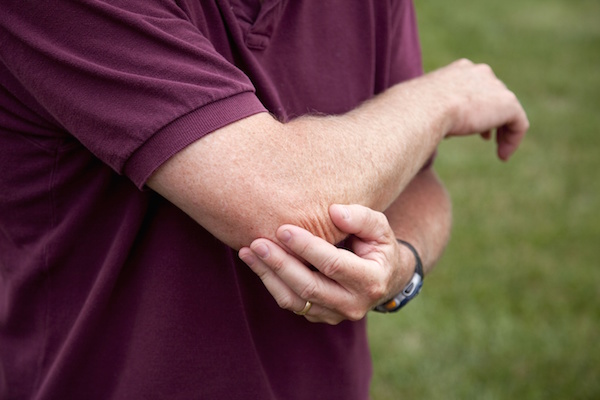
THURSDAY, Nov. 28, 2013 (HealthDay News) — Thanksgiving may be an official day of gratitude, but research suggests that if you make time for “thank you” every day, you might enjoy life more.
Many people may think of gratitude as a “passive” gesture — you wait for something good, then feel grateful, said David DeSteno, a professor of psychology at Northeastern University, in Boston. DeSteno studies the effects that thankfulness can have on people’s behavior.
But a growing body of research is suggesting the opposite is true, according to DeSteno: By choosing to feel gratitude, people can make positive changes in their lives.
“Gratitude isn’t passive reflection. It’s active,” DeSteno said. “And it’s not about the past. It’s there to help direct our behavior in the future.”
In experiments where he and his colleagues set people up to feel grateful, they found that thankfulness appeared to spur participants to act in more cooperative, less selfish ways.
In one study, for example, people came to the lab to complete a computer task. At some point, certain participants’ computers were rigged to “crash.” Luckily, a kind stranger who had just completed the same task (and was actually part of the research team) offered help and got the computer running again.
Afterward, all of the study participants played a standard economic game where people have the opportunity to either act strictly in their own self-interest or in a more cooperative way.
In general, DeSteno’s team found, the study participants who had gotten help from a stranger during that first test were more likely to be cooperative during the next test. (A survey all of the participants took confirmed that those who’d received help were, in fact, feeling more grateful than their counterparts who’d had smooth sailing.)
That’s one of a number of studies, DeSteno said, that suggest that gratitude helps guide behavior. It can encourage you to get more exercise or feel less anxious, or to be more helpful to others (and not just that person you feel you “owe”).
Some research has also found links between gratitude and better health, such as lower blood pressure and just feeling physically better. However, it’s not clear whether gratitude directly affects physical well-being.
That’s why researchers are also starting to look at whether gratitude changes measurable signs of health.
At the University of California, Los Angeles, Naomi Eisenberger and her colleagues have launched a study to see whether “practicing” gratitude affects people’s blood levels of inflammation-related proteins. Chronic low-level inflammation is linked to a host of health conditions, from diabetes to heart disease. The researchers are also using brain scans to see what areas of the brain are active when people feel thankful.
“There’s not much research on gratitude that has looked at biological markers [signs],” said Eisenberger, an associate professor of psychology. Typically, she added, studies have looked at people’s subjective well-being — which is important, but may also be swayed by any number of factors.
Eisenberger’s team hopes to zero in a bit more on the effects of gratitude. For six weeks, some study participants will spend time writing about things for which they are grateful. The rest will write about positive subjects, but won’t focus on gratitude.
The theory, according to Eisenberger, is that expressing gratitude will have a special effect on those inflammatory markers. One reason is that gratitude, based on studies like DeSteno’s, seems to enhance people’s ability to care for others.
And in animals, Eisenberger noted, caregiving is linked to lesser reactivity in the face of a threat — maybe so mothers will feel less scared for themselves when a predator comes, and protect their babies instead.
Whatever the biological effects, plenty of research suggests that gratitude can change how you feel — even about those people who’ve been in your life for years, according to Sara Algoe, an assistant professor of psychology at the University of North Carolina at Chapel Hill.
Her research has focused on the effects of gratitude in romantic relationships. In one study of 77 couples who’d been together for an average of four years, Algoe’s team had each partner think of something the other had done for them recently — no matter how small — and then thank him or her.
Before that task, the couples completed a survey on their satisfaction with their relationship. Then they did it again six months later.
In general, the study saw a shift in people who felt their partner really meant that “thank you” — thinking, for example, that “my partner saw the ‘real’ me.” Those men and women typically felt more satisfied with their relationship six months later.
The findings, according to Algoe, highlight the importance of saying “thank you” even for those mundane things, from those people you see every day.
“Expressing gratitude well is a potent part of relationship satisfaction,” Algoe said. “Sometimes we feel grateful, but we don’t say it. This research suggests it’s important to say it.”
For people who are not prone to seeing the good in daily life, gratitude may take a little work, the experts say. But, Northeastern’s DeSteno pointed out, that’s also good news — you don’t have to be warm and fuzzy by nature.
“We encourage people just to take the time to pause and consider what you’re grateful for,” DeSteno said. You could write one thing down each day, he noted, or just hold it in your mind.
And if someone offers you help, try accepting it instead of shunning it. “See it as a gift,” DeSteno said.
You can also try giving other people a break, and being thankful for the less-than-dramatic efforts they put forth, UNC’s Algoe said. “Maybe lower your threshold for appreciating the things other people do,” she suggested. “Just a little.”
More information
The University of California, Berkeley has more on gratitude and other positive emotions.
Copyright © 2026 HealthDay. All rights reserved.

